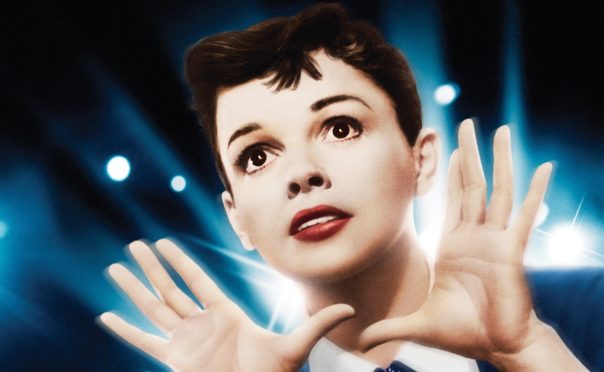
Fifty years ago, we said goodbye to Hollywood legend Judy Garland.
It was a sad end to what should have been a far more glittering career.
The pressures of child stardom affected Judy’s physical and mental health, and she was constantly criticised by film executives who said she was unattractive.
Plagued by alcohol and drug misuse as well as financial woes – she owed hundreds of thousands of dollars in back taxes – she died from what was probably an accidental barbiturate overdose in Belgravia, London aged just 47.
Garland’s tragic story is summed up by the 1954 movie version of A Star Is Born, co-starring James Mason and recently remade starring Lady Gaga and Bradley Cooper, which was both the crowning achievement and greatest disappointment of her career.
One of the most controversial productions in Tinseltown history, the story tells the dark side of fame including addiction, loss and suicide – paralleling its leading lady’s own life.
Indeed, as shooting progressed she began making the same excuses of illness that had plagued her final films at MGM – she hadn’t made a movie since leaving them some years previously.
The real reasons were chemical dependency, significant weight fluctuations, genuine illnesses and hypochondria, leading to delays, cost overruns and confrontations.
Probably too close to home for comfort, it led to an incredible performance from Garland described as “just about the greatest one-woman show in modern movie history” by Time magazine, and she was nominated for an Academy Award, only to lose out in one of the biggest Oscar upsets.
Garland had just given birth to her son but was such a hot favourite to win, TV cameras were set up in her hospital room so as to broadcast her expected acceptance speech.
However, in a decision Groucho Marx called “the biggest robbery since Brinks” in a telegram to Garland, Grace Kelly got the Oscar for The Country Girl.
Garland herself said: “I didn’t have time to be disappointed. I was fascinated by the reactions of the men. They got mad at me for losing and started lugging all their stuff out of the room. They didn’t even say good night.”
Running far too long for the studio’s taste at three hours, Warner Bros notoriously slashed the picture to pieces, breaking the hearts of both Judy and its director, the legendary George Cukor, and incurring the wrath of critics and filmgoers who’d seen and loved the original version.
Despite cutting 30 minutes from the running time, the picture proved popular but not enough to make its money back and Garland did not reap the profit reward she was expecting.
Thankfully, a restored version has been reconstructed from previously lost scenes and audio, leading to A Star Is Born becoming one of the most acclaimed movies of all time.
And this incredible tale is the subject of a new book by Lorna Luft, the daughter of not only the film’s star Judy Garland but also its producer, Sidney Luft.
Says Lorna: “I first caught it on late-night television, when I was 18 and living alone for the first time in New York City.
“Suddenly she was in a beach house and there, in the living-room set, was all the furniture I had grown up with – the white leather chairs, the hand-painted Chinese screens,
“These were the pieces that followed us into every family home because, after the film wrapped, my father told me that he purchased all the furniture from the set at a salvage cost of 10 cents on the dollar!
“It took me a few more viewings to understand why A Star Is Born is so special and why it was my mother’s favourite of all her films.
“Now I see. It is her movie all the way. The whole thing – every song, every line of dialogue – is tailor-made to showcase her specific talents, quirks and endearing qualities.
“The film is also deliberately self-referential to her own life and career. The catch in her throat when she belts the climactic notes in The Man That Got Away, her distinctive, musical laugh when she spots herself in the mirror, her face slathered with cold cream, the sparkle in her eyes when she wipes her tears and opens her arms wide, grinning in her straw hat.
“These moments are so Mama, so quintessentially Judy Garland. It’s her moment to shine.
“I knew my father much longer than I did my mother. I was still 16 – the age when my mother played Dorothy Gale in The Wizard Of Oz – when she died.
“It was incredibly painful for me to watch A Star Is Born for the first time.
“Up until then, I had only seen Mama on screen as a girl, either in The Wizard Of Oz or one of her many screen teamings with Mickey Rooney.
“That girl was a stranger. The person I knew as my mother was right there on television.”
On the subject of her mother missing out on the Oscar, Lorna recalls: “Mama’s good friend Laren Bacall was with her in the hospital that Monday night, and wrote later that she was gracious in defeat, saying her baby boy was much more important than any reward.”
A Star Is Born: Judy Garland And The Film That Got Away by Lorna Luft and Jeffrey Vance, published by TCM/Running Press is in shops now.


Enjoy the convenience of having The Sunday Post delivered as a digital ePaper straight to your smartphone, tablet or computer.
Subscribe for only £5.49 a month and enjoy all the benefits of the printed paper as a digital replica.
Subscribe